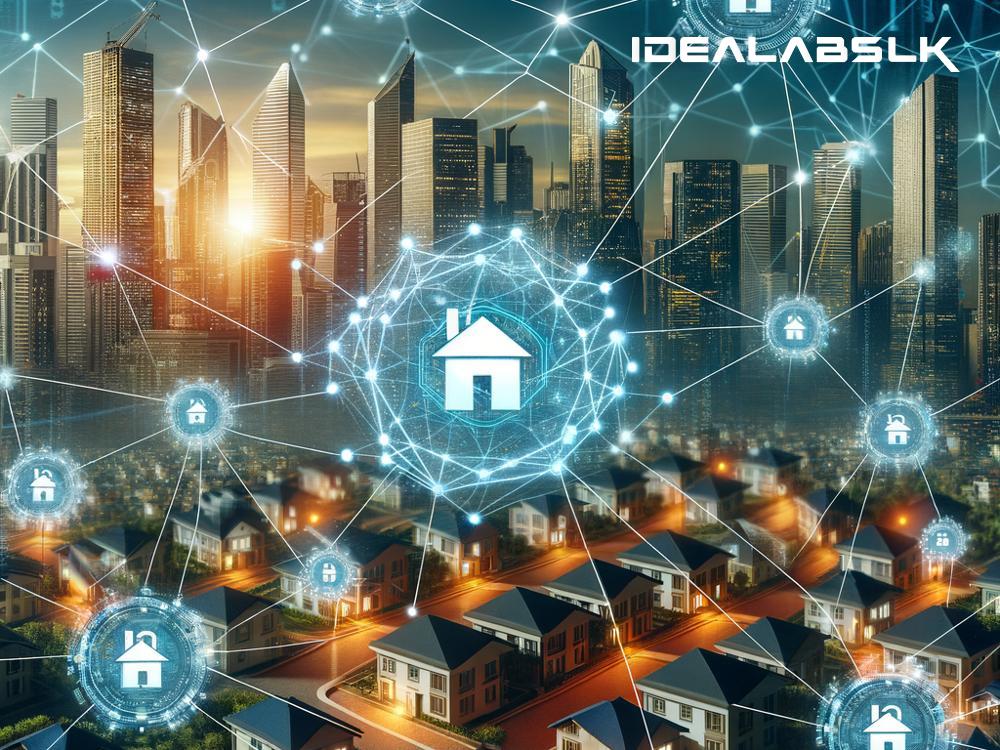Blockchain for Real Estate: Unleashing the Power of Decentralized Finance in Property Investments
In the fast-paced world of technology and finance, blockchain and Decentralized Finance (DeFi) are transforming how we think about property investments. Traditionally, buying or investing in real estate has been a process filled with paperwork, third-party brokers, and, let's not forget, a considerable amount of time and money. However, the emergence of blockchain technology is revolutionizing this landscape, making real estate transactions more transparent, secure, and efficient.
Understanding Blockchain and DeFi
Before we dive into how blockchain is changing the real estate sector, let’s unpack what blockchain and DeFi actually are. Imagine blockchain as a digital ledger that is completely open and public. This ledger records every transaction in a secure, verifiable, and permanent way. Decentralized Finance, or DeFi, is an ecosystem of financial applications built on top of blockchain networks. It aims to democratize finance by removing intermediaries (like banks) from financial transactions.
The Traditional Real Estate Market vs. The Blockchain Approach
In the traditional real estate market, transactions are often slow and cumbersome. There’s a lot of paperwork involved, and you need to deal with multiple intermediaries, including real estate agents, lawyers, and banks. These processes can be expensive, slow, and sometimes, not entirely transparent.
Enter blockchain and DeFi. These technologies promise to streamline real estate transactions by making them faster, cheaper, and more transparent. Here’s how:
Transparency and Security
Blockchain records every transaction in a way that cannot be altered or deleted, which brings unprecedented levels of transparency and security to real estate transactions. Buyers and sellers can see the entire history of a property, including previous ownership, prices, and any disputes or issues, all recorded on the blockchain. This reduces the chances of fraud and makes the buying process much more transparent.
Speed and Efficiency
Blockchain can significantly reduce the time it takes to complete real estate transactions. Since there's no need for so many intermediaries, the whole process becomes much more straightforward and faster. Additionally, with smart contracts (self-executing contracts with the terms directly written into code), many steps in the buying and selling process can be automated, further speeding things up and reducing the potential for human error.
Reducing Costs
By eliminating or reducing the need for intermediaries, blockchain can also lower the costs associated with real estate transactions. Fees for agents, legal services, and banks can make buying property an expensive endeavor. DeFi, through the use of smart contracts and decentralized applications (dApps), can significantly reduce these costs by streamlining the process.
Liquidity and Access
Blockchain opens up new opportunities for real estate investments. Traditionally, investing in real estate required a significant amount of capital upfront. However, through tokenization (dividing property into shareable digital tokens), blockchain allows investors to purchase fractions of a property. This not only makes real estate investment more accessible to a broader group of people but also improves the liquidity of real estate as an asset class.
Challenges and Limitations
While the future of blockchain in real estate looks promising, there are still challenges to overcome. Regulatory issues, lack of understanding and trust in the technology, and the need for a more robust infrastructure are some of the hurdles facing the widespread adoption of blockchain in real estate.
The Future of Real Estate on the Blockchain
Despite these challenges, the potential benefits of blockchain and DeFi in real estate are too significant to ignore. We are already seeing startups and established companies experimenting with blockchain for property listings, transactions, and even crowdfunding real estate investments.
As technology continues to evolve and mature, we can expect to see more innovative applications of blockchain and DeFi in the real estate sector, making it easier, faster, and cheaper to buy, sell, and invest in property. The journey towards a decentralized real estate market is just beginning, and it promises to make property investment more accessible and democratic for everyone.

